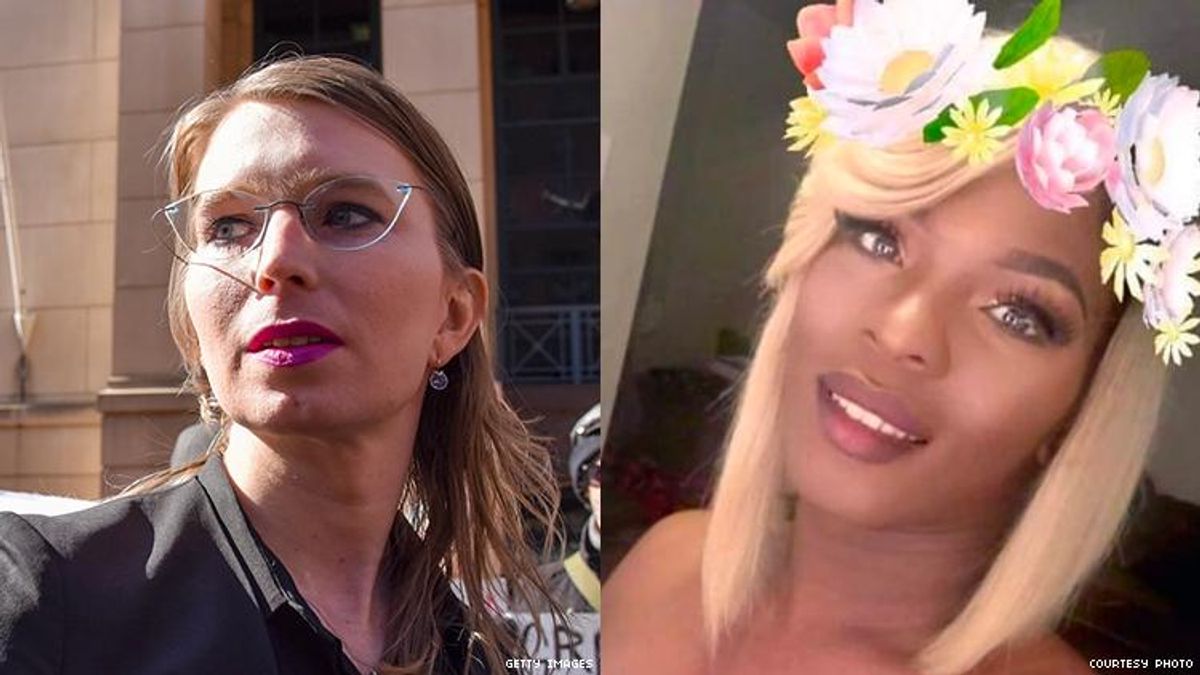Halfway through writing an article about Chelsea Manning and how the media kept deadnaming her in their articles about Wikileaks and Julian Assange's arrest, I heard about the brutal beating of Muhlaysia Booker. I could have finished that article about Manning and the problem of deadnaming famous transgender people, and it would be one of another 100 articles and tweets about it and blow away in the wind, so I decided not to.
While deadnaming is obviously bad, there always seems to be less urgency and interest to address issues more fundamental to transgender people's lives, especially if they are nonwhite. At times it can feel like we're not only putting the cart before the horse by focusing on issues more about nuance and the finishing touches of trans rights than basic tolerance, but we get blinded by the decorations on those carts.
I'm not much of an activist, never really have been. In the past year or two, I've even pulled back from interacting with my own community. I don't tweet much about being transgender or the problems I face. For me, being transgender really hasn't been a driving part of my life and identity for a while now, and it's just become a sort of low background hum to my existence. It was only really a major thing recently for me as I went looking for a new job and made sure folks knew I was an out and proud LGBTQ person so that they could decline to offer me the job up front instead of running me off later. This is actually a kind of luxury.
Having a life without constant daily dysphoria, concerns about money, or even my basic safety is a luxury.
A lot of folks, especially trans people of color, would make a trek to Mordor to toss a ring into a volcano for my life. While I don't make nearly as much money as I would like, over a third of Black trans people make less than $10,000 a year, which is less than minimum wage. Forty-one percent have been homeless at some point, which is five times more than the average American. Twenty percent have HIV, and over 25 percent don't even have a job. While the rate of suicide attempts for trans folks is 41 percent, it reaches almost 50 percent for Black trans people. Almost half have been incarcerated at some point in their lives, half. Of course we have all heard that the majority of transgender women killed in this country are Black or Latino as well.
Now, I don't want to paint some pitiable picture of the lives of Black transgender people; that their lives are constant torment and hell. That would be far from the truth. Some of the most respected, famous, and yes, wealthy transgender people in our country are Black and Latino. It's just that when we talk about issues that affect transgender people, we tend to talk in a collective "we" and not about issues that disproportionately affect trans people of color. When we talk about things like decriminalizing sex work, which when "we" think about it mostly is centered on "escorts," which are the expensive prostitutes and cam girls with their own web pages and rates that climb into the thousands of dollars for a client or two a night, not the average "hookers" who tend to trade in volume. Even the way we think of sex work differentiates us.
Yet "we" forget that their Black trans lives are vastly different and often forgotten about. I pay attention when people of color share their stories, and I elevate stories about them and their lives. I want to defend them from discrimination and circumstances I don't have to face in my life. That's why I heavily criticized the leaders of the Women's March when they defended Louis Farrakhan. It wasn't so much about the anti-Semitism, which, let's face it, had no problem being covered in the media, it was about Farrakhan's homophobia and transphobia. Of course, I'm white, so I don't know for sure, but I've been told by Black people that homophobia and transphobia are worse by several degrees within their communities, and that bothers me. So when I chose to speak out against Farrakhan, that's why I did it. It was on me, if I'm any type of ally, to stand up for these folks when it's not also in my own benefit.
So when I saw the video of Muhlaysia Booker being beaten to the point she needed to be hospitalized as her attackers hurled slurs at her, I had to speak up. There's a million and one articles being written about Chelsea Manning and her plight, which you can only rehash so many different ways before it becomes redundant. Just change a few details and republish an old article. It's time we in the media dial back some of our fascination with celebrity to spend less time worrying about what proper way to describe the color of the horse that's tied up behind the cart.
Yes, without a doubt Black and Latino trans people care about pronouns and Hollywood casting, but there are things that affect them more directly and with graver cost than that; violence, "walking while trans," being murdered at a frighteningly higher rate, access to basic services. I want "us" to talk about that more.
AMANDA KERRI is a writer and comedian based in Oklahoma City, and a regular contributor to The Advocate. Follow her on Twitter @Amanda_Kerri.


















































































Fans thirsting over Chris Colfer's sexy new muscles for Coachella